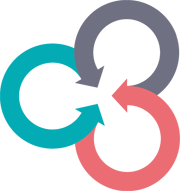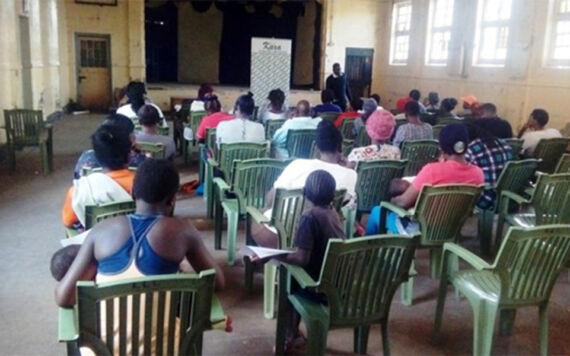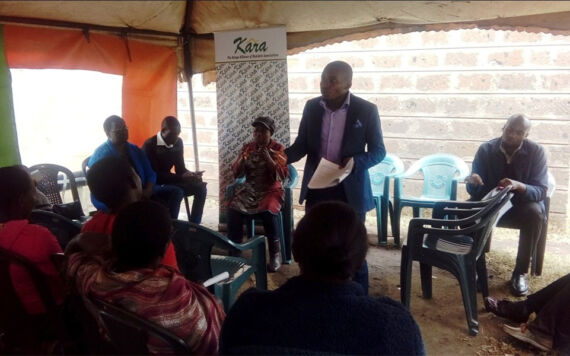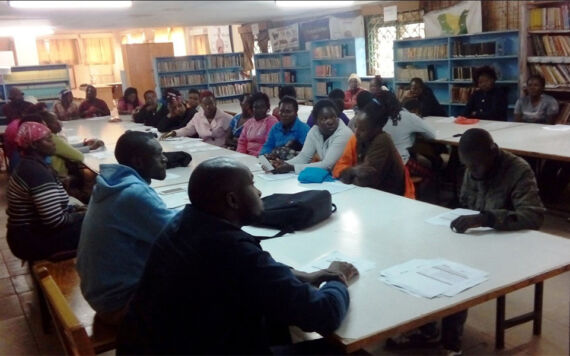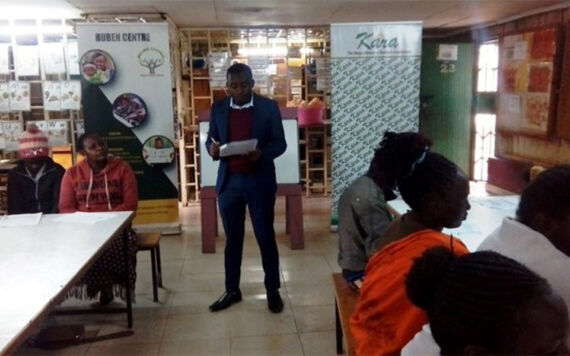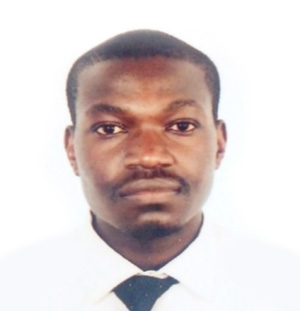| Project Name | Promoting School and Home-Based learning for Children with Disabilities (CWDs) in low Resource residentialAareas during COVID-19 Pandemic in Kenya |
| Commisioned by | German Federal Ministry for Economic Cooperation and Development (BMZ) |
| Country | Kenya |
| Implementing Organisation | Kenya Alliance of Resident Associations (KARA) – www.kara.or.ke |
| Duration | December 2021 – May 2023 |
The Challenge
Lack of Quality Education for Children with Disabilities: The Kenyan legislative guarantees quality education for children with disabilities. Nevertheless, inadequate funding, limited social support structures, and shortage of teachers with skills to teach children with disabilities, are hampering access to inclusive education. Especially in low-income urban areas the provision of early child development programmes for children with disabilities remains challenging and calls for governmental initiatives.
Community-based Educational Services: Low-cost Early Education Development (ECD) centres have been set up by several individuals, religious and community-based organizations in informal settlements. Children with disabilities rely on these as well as on home-based programmes managed by CBOs, private individuals and community schools in order to receive education and services. The COVID-19 pandemic forced many of the centres and schools to close, cutting off access to various services needed by children with disabilities. As a result, many families with children with a disabilitiy living in informal settlements are not able to access education and support services.
The Objective
The project’s objective is to provide learning opportunities for children living with a disability through the implementation of specific targeted learning materials. Therefore, the project implements digital learning mechanisms that responds to the needs of learners with disabilities and their caregivers.
The Target Group
The main target group are children with physical and intellectual disabilities (in and out of school) in four selected informal settlements in Nairobi.
The project aims to support caregivers or parents who are responsible to foster learning and access of services to children with disabilities. Additionally, early child education teachers are targeted through specific training and adequate in-service professional development on inclusive education.
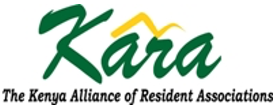
About KARA
The Kenya Alliance of Resident Associations (KARA) is an umbrella body founded in 2000 representing the voice and proactive action of Resident Associations on consumers and taxpayers’ rights in Kenya. Its mission is to inculcate partnerships and promote good governance, transparency, accountability, and ethical practice in public service delivery for all society members.
Website: www.kara.or.ke
The Approach
Launching an Inclusive Digital Learning Platform: In collaboration with innovators, KARA launches an Inclusive Digital Learning Platform (IDLP), that provides accessible child-friendly educational materials and stories for early literacy. Via the IDLP, learners can access age and (dis-)ability appropriate educational content designed for all persons but explicitly to children living a disability. The platform can be used as a tool at schools and as additional learning resource to be used at home.
Building Capacities of Teachers: The project builds capacities of teachers and caregivers in adopting and utilizing innovative inclusive early childhood education programs for children with disabilities. The platform helps teachers and parents to access resources, communicate, and to support learners with disabilities in their early years as well as accessing essential services provided by or promoted through ECD centers. The latter referring to primary healthcare, nutrition, responsive care, safety and securing (child protection) alongside opportunities for learning.
Sharing Knowledge: A key component of the inclusive digital learning platform is a knowledge sharing and exchange function, where stakeholders can meet to share information, innovation, and best practices related to inclusive education policy and programming and to inform knowledge gaps and policy priorities.
Raising Awareness: KARA raises awareness about the learning needs of children with disabilities and available inclusive learning materials on the digital platform to help address negative attitudes and norms and essential service within the communities.
Achieved Results
- An Inclusive Digital Learning Platfrom was developed
- 1,080 teachers and caregivers were trained and supported in utilizing the child with disability friendly learning materials and the digital learning platform
- 813 children with or without disabilities received access to schools and home-based education and community support services
- 240 teachers were trained and supported to utilize the children with disability-friendly learning materials and the digital learning
Vincent Amwoi
Programs Officer
The Kenya Alliance of Resident Associations
In the context of sustainable development, what do you consider the greatest challenge that you help to overcome in your country? What is special about your project and approach, with regard to the context in which it is located?
SDG 4 requires countries to ensure inclusive and quality education for all and promote lifelong learning. Covid-19 exposed existing inequalities around the right to education in Kenya. In March 2020, Kenyan Government abruptly closed schools countrywide, affecting learning. In the spirit of leaving no one behind, KARA aimed to promote access to education at home and school for children with disabilites (CWD) in 4 low resource residential areas in Nairobi. KARA’s model centered on bringing together stakeholders advancing CWDs rights. The project drive its impact by building capacity of teachers and caregivers through peer education to support CWDs access education and connecting them to products/services that promote school and homebased learning.
Let’s get specific: What was your most significant project success? What was especially important/notable? What are you particularly proud of having achieved?
Development of a disability service provision manual for enhancing the education of CWDs at home and school. The manual has been used to train 200 teachers and 800 peer educators who are caregivers in marginalized communities (Kibera, Mukuru, Kawangware, and Makongeni) to cater to the unique learning needs of at least 877 CWDs in their early years, and to enhance necessary knowldge and skills in delivery of inclusive education. The training was designed to create awareness on inclusive learning with a focus on enhancing accesibility to learning materials through the application of the Universal Design for Learning principles. The trained peer educators passed on the learnings through home visits, formal and informal outreach sessions.
What have you learned and what experiences would you like to share with like-minded actors/practitioners?
(1) There is need to build working networks and collaborations among government and local actors in the disability field such as community based organizations, schools and religious instituions who can act as good refferal points and help in identifying and reccomending households with CWDs who deserve to be supported. (2) Policies on inclusive education are not well understood by stakeholders at the local level such as teachers, parents and local administration officials. Their is need for policies to trickle down so that they are understood by local stakeholders to be well implimented and monitored. (3) To address teaching capacity gaps, teachers should be taken through indepth and practical training on inclusive education.

